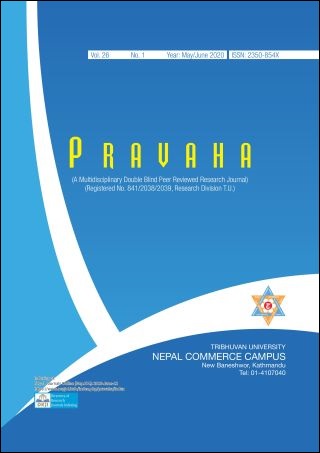Achieving Work-Life Balances through Flexible Work Practices
DOI:
https://doi.org/10.3126/pravaha.v26i1.41649Keywords:
Flexibility of work arrangements, Employees, Work-life balanceAbstract
The paper aims to examine flexible work practices and employees' perception of work-life balance. The main purpose of this study is to understand the relationship between flexible work practice and work-life balance. The study is descriptive and co-relational. It is based on the perceptions of employees and includes the questionnaire to 160 employees of service-based organizations working on a different level at Kathmandu Valley. The sample consisted of managerial and nonmanagerial employees who were interested to participate in this study. It is found that employees feel that a flexible work schedule is the right kind of system for their kind of job and they prefer flexibility at work. Flexibility work practice was found to have a positive impact on the employees. It made them more responsible as they were able to manage time at work and fulfill the personal commitment. This paper is useful to academicians and organizations to understand the impact of FW practices on work performance. The findings in this study would help managers and organizations in Nepal to formulate flexible work schedules to improve the work-life balance of human resources working in the organization.
Downloads
Downloads
Published
How to Cite
Issue
Section
License
© Nepal Commerce Campus, TU
Authors are required to transfer their copyright to the Nepal Commerce Campus, TU.




